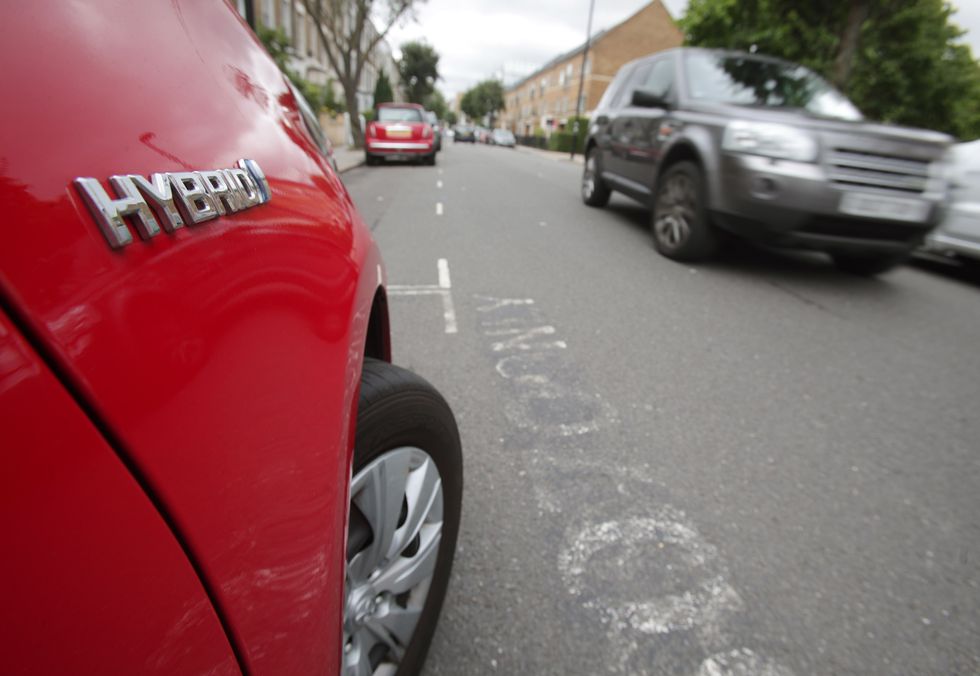Hemma Visavadia
Guest Reporter
Drivers have been warned they face higher tax rates after a significant emissions loophole for plug-in hybrid vehicles was closed at the start of 2025.
The reform affects the benefit-in-kind tax rates for plug-in hybrid vehicles, which previously were able to receive substantial tax advantages through company salary sacrifice schemes.
Under the old system, drivers could benefit from lower tax rates by choosing hybrid vehicles, regardless of their actual use of the electric battery component.
The changes to what experts describe as a "deeply flawed" system mean new hybrids will now undergo more rigorous emissions testing, resulting in reduced tax benefits for company car users.
Do you have a story you'd like to share? Get in touch by emailing [email protected]

The new regulations introduced last week replace the Euro 6e emission standards with more stringent Euro 6e-bis tests. This change marks a significant shift in how plug-in hybrid vehicles are assessed for tax purposes.
Previously, PHEVs enjoyed favourable benefit-in-kind rates, with most vehicles attracting tax rates of five per cent, eight per cent or 12 per cent. These rates are now set to increase substantially under the new testing regime.
The reform aims to provide a more accurate assessment of vehicle emissions, addressing longstanding concerns about the testing system's effectiveness.
The impact of these changes is illustrated by the BMW X1 xDrive25e, which will see its benefit-in-kind rate triple from eight per cent to 24 per cent.
For higher-rate taxpayers, this means paying approximately £3,000 more in tax to drive their company BMW this year showing huge spikes compared to last year.
Benefit-in-kind tax is determined by three key factors: the car's P11D value (list price plus VAT), CO2 emissions, and the owner's income tax band, experts explained. While electric vehicles maintain low rates of just two per cent, vehicles with higher emissions can face rates of up to 37 per cent.
Stuart Masson, of The Car Expert, said the previous testing system had clear flaws that were well known throughout the automotive industry.
He told The Telegraph: "Car companies have exploited the testing methods in the last few years to produce plug-in hybrid models with increasingly ludicrous CO2 and miles per gallon figures that exploit tax and subsidy legislation all over Europe.”
Experts explained that the system allowed manufacturers to take advantage of tax benefits and subsidies across European markets.
"The lab testing regime for plug-in hybrids has always been deeply flawed, which is no secret and would be obvious to anyone who's ever picked up a car brochure," Masson added.
Meanwhile Matt Walters, from car leasing firm Ayvens, suggested these changes could accelerate the move away from hybrid vehicles.
"This may push plug-in hybrids out of favour faster than expected as employers and drivers alike shift towards fully electric vehicles to avoid future tax rises," he said.
LATEST DEVELOPMENTS:

But the industry is already seeing signs of this shift in company car schemes. "We're also noticing that PHEVs are slowly being phased out of salary sacrifice schemes," Walters added.
But Masson warned that most drivers will be concerned that they are now going to be paying more tax. "The changes meant their next plug-in hybrid model is likely to be significantly more expensive to own and run than their current car," he stated.
Find Out More...
The reform affects the benefit-in-kind tax rates for plug-in hybrid vehicles, which previously were able to receive substantial tax advantages through company salary sacrifice schemes.
Under the old system, drivers could benefit from lower tax rates by choosing hybrid vehicles, regardless of their actual use of the electric battery component.
The changes to what experts describe as a "deeply flawed" system mean new hybrids will now undergo more rigorous emissions testing, resulting in reduced tax benefits for company car users.
Do you have a story you'd like to share? Get in touch by emailing [email protected]

The new regulations introduced last week replace the Euro 6e emission standards with more stringent Euro 6e-bis tests. This change marks a significant shift in how plug-in hybrid vehicles are assessed for tax purposes.
Previously, PHEVs enjoyed favourable benefit-in-kind rates, with most vehicles attracting tax rates of five per cent, eight per cent or 12 per cent. These rates are now set to increase substantially under the new testing regime.
The reform aims to provide a more accurate assessment of vehicle emissions, addressing longstanding concerns about the testing system's effectiveness.
The impact of these changes is illustrated by the BMW X1 xDrive25e, which will see its benefit-in-kind rate triple from eight per cent to 24 per cent.
For higher-rate taxpayers, this means paying approximately £3,000 more in tax to drive their company BMW this year showing huge spikes compared to last year.
Benefit-in-kind tax is determined by three key factors: the car's P11D value (list price plus VAT), CO2 emissions, and the owner's income tax band, experts explained. While electric vehicles maintain low rates of just two per cent, vehicles with higher emissions can face rates of up to 37 per cent.
Stuart Masson, of The Car Expert, said the previous testing system had clear flaws that were well known throughout the automotive industry.
He told The Telegraph: "Car companies have exploited the testing methods in the last few years to produce plug-in hybrid models with increasingly ludicrous CO2 and miles per gallon figures that exploit tax and subsidy legislation all over Europe.”
Experts explained that the system allowed manufacturers to take advantage of tax benefits and subsidies across European markets.
"The lab testing regime for plug-in hybrids has always been deeply flawed, which is no secret and would be obvious to anyone who's ever picked up a car brochure," Masson added.
Meanwhile Matt Walters, from car leasing firm Ayvens, suggested these changes could accelerate the move away from hybrid vehicles.
"This may push plug-in hybrids out of favour faster than expected as employers and drivers alike shift towards fully electric vehicles to avoid future tax rises," he said.
LATEST DEVELOPMENTS:
- Motorists slam 'hypocritical' plans to reduce speed limits for cars but increase them for HGVs
- Smart cars hit roadblock as UK drivers refuse to back 'revolutionary' tech amid huge trust issues
- Local council apologises over major parking charges error as Mayor takes ‘full responsibility’ for mishap

But the industry is already seeing signs of this shift in company car schemes. "We're also noticing that PHEVs are slowly being phased out of salary sacrifice schemes," Walters added.
But Masson warned that most drivers will be concerned that they are now going to be paying more tax. "The changes meant their next plug-in hybrid model is likely to be significantly more expensive to own and run than their current car," he stated.
Find Out More...
